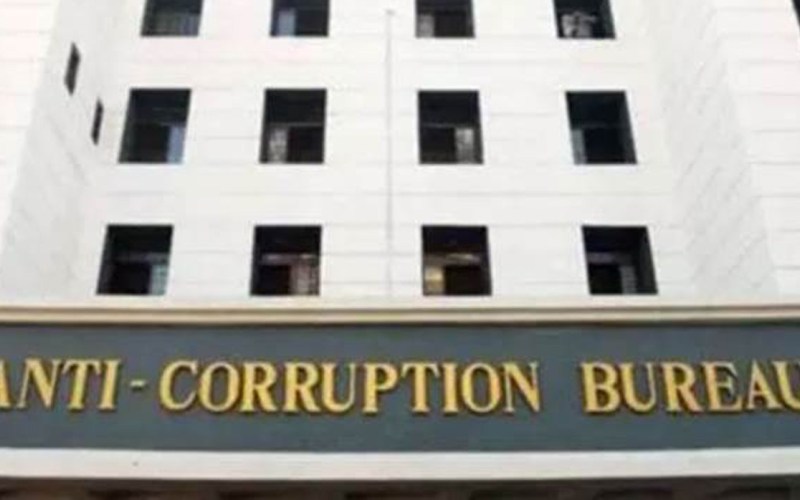The tumultuous journey of Jammu and Kashmir spans over three decades, leaving an indelible mark on the region’s socio-political tapestry. Recent milestones, notably the commemoration of World Anti-Corruption Day and the consequential abrogation of Article 370 on August 5, 2019, signal a pivotal juncture in the trajectory of Jammu and Kashmir’s future.
Significance of World Anti-Corruption Day and Post-Abrogation Developments:
The observance of World Anti-Corruption Day assumes paramount importance in the post-Abrogation phase of Jammu and Kashmir. This global acknowledgment underscores the region’s steadfast commitment to combat corruption and foster transparency. Notably, there has been a palpable improvement in the region’s law and order situation since August 5, 2019, indicating a collective resolve to confront historical challenges exacerbated by prolonged conflict.

The Emergence of the Anti-Corruption Bureau (ACB):
A seismic shift unfolds with the establishment of the Anti-Corruption Bureau (ACB), heralding a new era in the fight against corruption. This specialized unit has orchestrated systematic crackdowns on corrupt officials across Jammu and Kashmir, demonstrating an unwavering commitment to uproot entrenched corruption. Collaborating with volunteers from the public, the ACB has conducted numerous operations resulting in the apprehension of corrupt government officials, particularly targeting malfeasance within the revenue department. Srinagar district notably recorded the highest number of officials caught in corruption cases over the last three years. Official data reflects that out of 1600 reported corruption cases, 1001 have been charge-sheeted, showcasing the ACB’s dedication to pursuing accountability.

E-Governance and Administrative Reforms:
The administrative system takes an assertive stance against corruption, identifying it as a primary adversary. Embracing technological advancements, the system undergoes a profound transformation towards electronic governance, with e-offices operating at full capacity. This transition not only streamlines administrative processes but also serves as a robust deterrent against malpractices, setting new benchmarks for efficiency and transparency in governance.
Historical Roots in the 30-Year Conflict:
The 30-year conflict in Jammu and Kashmir emerges as a crucible that has significantly shaped the region’s socio-political landscape. Throughout this tumultuous period, power dynamics were frequently manipulated by terrorists and their backers, nurturing a corrupt ecosystem. Political instability, coupled with the prevailing fear among mainstream leaders, added layers of complexity, creating an environment conducive to corruption.
Corrupt Ecosystem: Engaging Kiths and Kins:
Certain groups strategically positioned their relatives in pivotal departments, notably in education and the police force. This deliberate placement created a corrupt ecosystem that not only perpetuated corruption but also provided support for terrorist activities, with entities like Jamaat-e-Islami playing a pivotal role.
Challenges and Controversies:
Corruption in Jammu and Kashmir encompassed various malpractices, including embezzlement, nepotism, and bribery, resulting in high-profile scandals that exposed the depth of the issue. Addressing these multifaceted challenges necessitates a comprehensive approach that tackles systemic issues, judicial bottlenecks, and ingrained cultural attitudes.
Role of Civil Society and Religious Community:
Civil society organizations and the religious community have played pivotal roles in advocating transparency and accountability. Grassroots movements, awareness campaigns, and international scrutiny have acted as catalysts for change, fostering an environment where corruption faces collective resistance.
Moreover, the impact of corruption transcends mere financial implications. It erodes public trust in institutions, stifles socio-economic progress, and perpetuates a cycle of inequality and injustice. Therefore, a concerted effort to address corruption is pivotal not just for legal rectitude but also for societal well-being and progress.
In conclusion, the roots of corruption in Jammu and Kashmir intertwine with historical, political, socio-economic, and geopolitical factors. Effectively addressing these complexities is fundamental to fostering a culture of transparency and accountability. As the region navigates the challenges posed by corruption post-Abrogation, a sustained and collective effort is imperative to pave the way for a more just, equitable, and corruption-free future that enables the region to harness its full potential for growth and prosperity.



